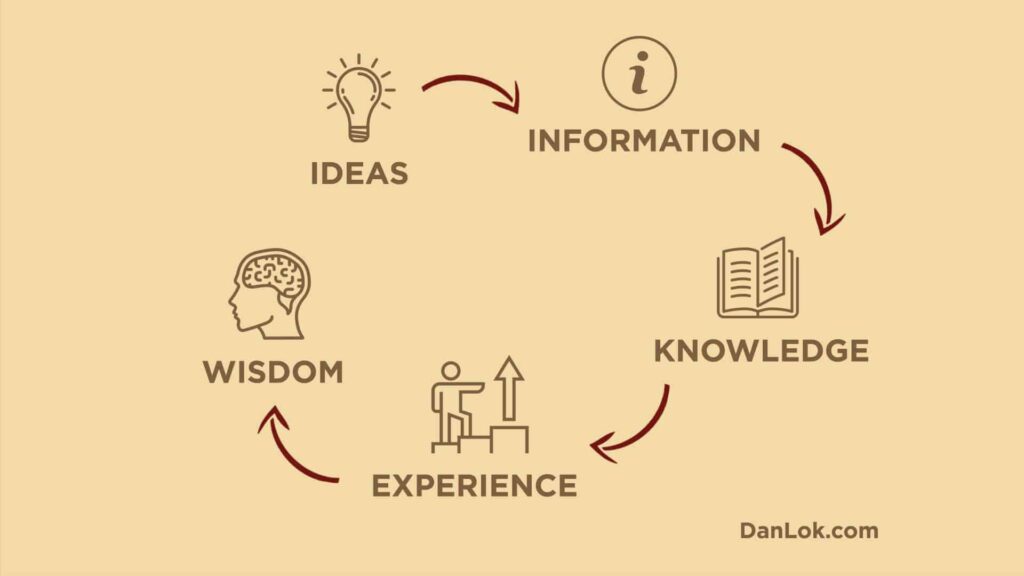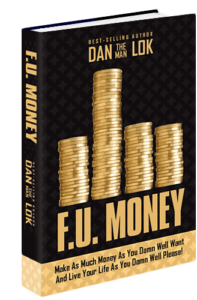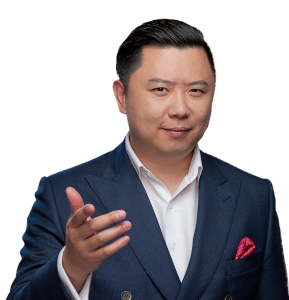“Which books should I read to effectively learn? What’s the fastest way to get the most information in a short period of time?”
My mentees from around the world ask me these questions, because they are looking for that book that will grant them to success like a key to unlocking everything. But what they may not know is that I don’t read books.
I use books and that’s a big distinction. When I read a book, I’m not trying to understand everything the author is saying. I’m not trying to understand all the concepts and ideas because the purpose of learning is mastering. It’s all about implementation of knowledge.
So when you have a book in front of you, don’t read it, use it. Here are some ways that I implement what I learn.
Watch this video about why I don’t read books.
I hear people declaring that, “I read a book a day” or “I read a book a week.” In my case, read about two to three books a week. I’m constantly learning. When I read books – when I use them – I have a simple goal.
The Power Of Three
For each book, I look for three key ideas from the book that I can implement immediately. Just three. Even if I find more, I only implement three.
If I can get those three ideas from the first three chapters, I will highlight them as my three takeaways and then I’ll put the book back on the shelf. Maybe later on I’ll go back and read the rest of the chapters and implement some of the other ideas. But once I’ve got my big three, I’ve achieved my goal.
Sometimes I get my ideas from the back of each chapter, where they’re talking about action steps and summaries and resources. Those are great places to look. Sometimes I get ideas just from the table of contents. If that’s the case, I put the book away and then I implement.
So, I don’t read books. It’s not about accumulating book titles in your list of accomplishments. Being able to list off books that you’ve read doesn’t mean anything if they haven’t changed your life. That’s the big distinction I want you to get.
One of the most powerful tools you need to have in life or in business is clarity. And clarity is power. And power is the ability to take action. That’s a tremendous mindset shift.
The more you read, the more confused you get, and the less clarity you have. The confusion robs your power. If reading more gives you more clarity and gives you an increased ability to act, that’s good. That’s powerful.
Converting Information Into Knowledge
Now, the next step to gaining clarity is the big difference between 1) information and knowledge and 2) knowledge to wisdom. Let me explain. Information is just facts, data, numbers, figures, theories, and principles. There’s a lot of information on the internet, YouTube and Google.
The volume of information available to you does not make you richer. It also does not make you happier or healthier or smarter. Information is just information.
A metaphor is when you’re going to school and reading books in class. There’s a lot of information in your textbooks. This is the first stage.
Once you’ve gathered enough information, you start accumulating knowledge. You’re taking the information and you’re learning about the distinctions. You’re also applying it in a project or you’re taking a test.
After the test, you find out whether you passed the exam and which answers you got wrong. Well, you’re learning from how you applied your knowledge. That’s accumulating your knowledge. In a similar way, a lot of people read books to acquire information.
The tragic part is, many read books to acquire information and then they wonder, “Why am I reading and learning but my life is still exactly the same?”
Turn Knowledge Into Experience
The answer is simple. They haven’t converted information to knowledge, and knowledge into experience. Now how do you convert knowledge into experience?
After you’ve acquired some knowledge, you’ve got to implement by getting some experience. You may think that the only way you can get experience is if you’ve made multiple mistakes. If you make a mistake, you get to see if an idea works.
It’s how you get experience. You’re seeing the pattern of things. Let’s go back to the school example. Now that you’ve taken enough exams, you’ve also studied the same subject for many years in a row. Science and math for example.
Now you see a pattern as you gain more experience of what works and what doesn’t. Experience is much more valuable than knowledge and knowledge is more valuable than information.
Books themselves are just information. Information does not change your life. You’ve got to give it meaning by converting. You need to gather it and filter it into knowledge. Then from knowledge, you implement and turn it into experience.
Wisdom Is Simplification
When you’ve been working with experience long enough, it evolves into wisdom. There’s a big difference between information or knowledge and knowledge versus wisdom. I don’t consider myself to be a super smart guy. People label me more as a wise man.
I’m wise because I’ve done a lot of things and had a lot of experience. In contrast, a lot of people are smart but they’re not wise. Wisdom is something completely different. Wisdom is knowing what not to do. It’s also knowing when you don’t have to do something.
That means if you have enough experience, you know how you’re going to make something work.
My experience tells me, these are the 20 things that I could do to make me successful. Wisdom is knowing, “Okay, 19 of these things are useless. Just do this one.” That is the difference. Knowledge is about accumulation. Wisdom is about elimination.
It’s not about daily increase, it’s about daily decrease. Eliminating what doesn’t work, for example. But you cannot gain wisdom without knowledge. You cannot obtain wisdom without experience. You have to go through all of that. After you finish those stages, you can simplify everything that you do.
In fact, there are only a few things that you need to do to get you the results. You don’t need to do a hundred things. You can do a couple of things and do them well. Most people are smart but not wise. You can tell by the way that they communicate because it lacks a lot of depth. It lacks wisdom.
It’s all about taking ideas and turning them into information, converting information into knowledge, then turning knowledge into experience. I filter my years of experience and condense that into the wisdom that I have. This is what works for me. It might work for you.
Swimming In Deep Water
So it’s not so much a question of, “Oh what books should I read, Dan?” Or, “What’s the best way to learn?” Those are very superficial questions. You need to go deeper than that and go beyond reading books.
You want to take the information that you read, implement it in the real world, and see what works. There are many stages of learning.
When you start applying, that’s when you find out what works and what doesn’t work for you. You can read about how to swim but you aren’t really learning until you are swimming laps back and forth in the pool. After that, you can swim in the lake because you have experience.
Now when you have wisdom, you can go and swim in the ocean but you also know it’s better not to because of the sharks. That’s wisdom.

Final Thoughts On Why You Shouldn’t Read
Now you know why you shouldn’t just read books. You should use them. Implement what you learn. If you read hundreds of books but your life is the same, then all that information hasn’t benefited you at all.
Knowing that, ask yourself now, How are you going to change the way that you learn? How are you going to change the way that you read books?
Most importantly, how are you going to change the way that you accumulate true knowledge, true experience and wisdom?
What is one idea you will implement today? Comment below.
Suggested articles:


